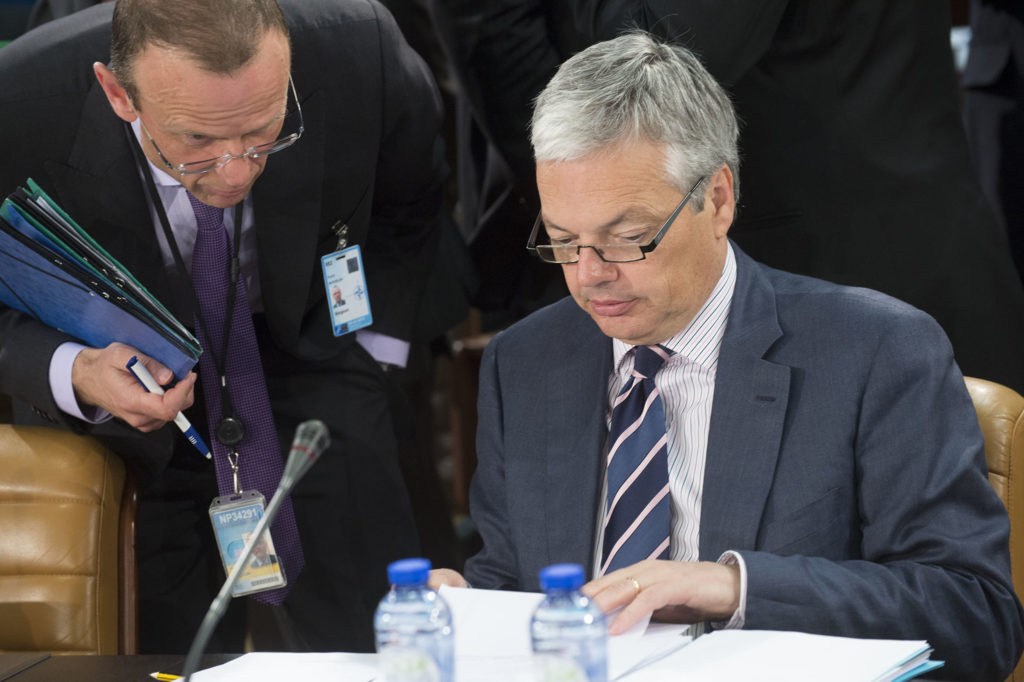The organisation representing journalists in Belgium (AGJBP) has written to foreign minister Didier Reynders to protest a proposed new law sponsored by the minister and his department which would make the media and whistle-blowers liable to prosecution for the revelation of classified information in the press.
The association has called on Reynders (photo) to take account of the remarks of the Council of State when it gave its opinion on the proposal in June, and include a provision in the law which would guarantee fundamental rights to information and freedom of expression, and which would reaffirm the duty to reveal information on “reprehensible acts” in order to protect the public interest.
At present, documents carrying a confidential, secret or top secret stamp require a security clearance to read legally. Officials who reveal the contents of such documents face a prison sentence of up to five years, but the media which publishes the leaked information cannot be prosecuted. The Constitution guarantees the freedom of the press. But the E=Reynders law would change that.
Journalists point to the public interest in their defence of the status quo. Kristof Clerix, an investigative journalist now with Knack, and a member of the International Consortium of Investigative Journalists (ICIJ) which revealed the Offshore Leaks and the Panama Papers, gives two examples: that the American National Security Agency (NSA) is spying on worldwide internet traffic with the aid of internet companies; and that the convicted murderer Abdelkader Belliraj was an informant or the Belgian state security agency: both revelations were classified, but they were revealed in the public interest. Under the new law, the press which reported on either would be liable to prosecution.
The law was brought to the council of minister of the federal government in May, shortly before the elections, by foreign affairs minister Didier Reynders, whose department governs the national security administration which runs the system of classification of confidential information. It was approved in principle by his cabinet colleagues, but the announcement left one detail unmentioned: prosecution would now be an option not only for officials with a security clearance who reveal confidential information, but for anyone, including the media. The new offence would carry a fine of up to 5,000 euros.
Both the I Committee, which administers the intelligence sector, and the Council of State, which gives an opinion on all new proposed legislation, raised a red flag: the new law was in danger of breaching the fundamental democratic right to freedom of speech, the right to information, freedom of expression and the rights of the defence. More specifically, the Council of State warned, the law could run into trouble with Article 10 of the European Convention on Human Rights. Ironically, when Belgium recently adopted a European directive on business confidentiality into national law, it included a special derogation for cases involving the media.
Pol Deltour, national secretary of the journalists’ association, said the law would make any democratic control on the activities of the state impossible.
“On the face of it, the government needs to be able to hold classified information back. If the plans for the Normandy landings had appeared in the press, we would never have been liberated from the Nazis,” he told Knack. “But the government also has to be responsible for why they do so, and make it clear why the right to information is being curtailed. And that is not happening at present.”
Alan Hope
The Brussels Times

